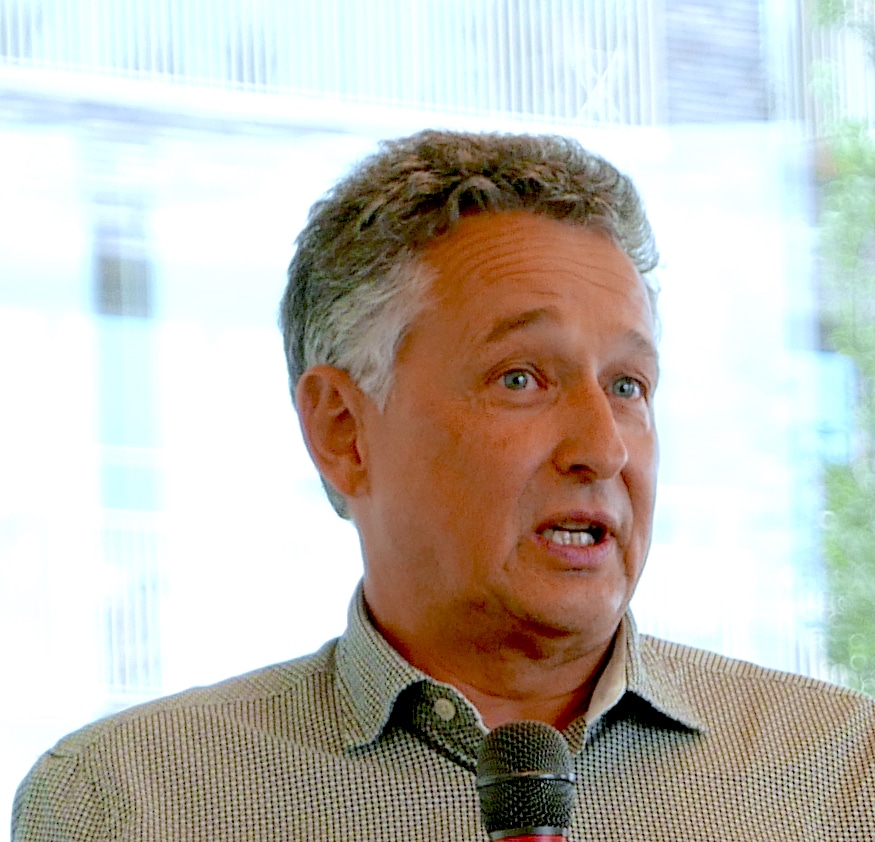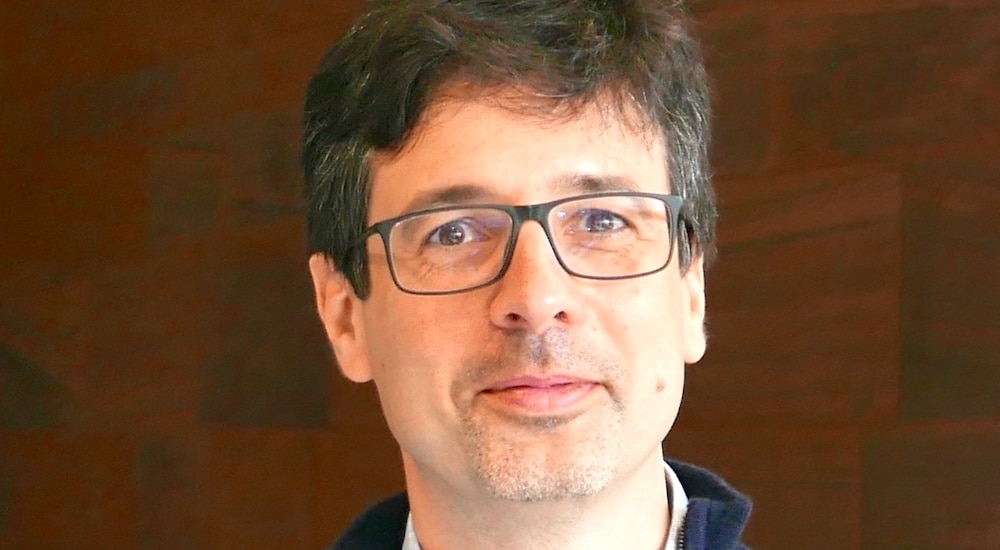The ECHHO of well-being - Cognitive health now a priority of Phonak’s training
As Phonak's science authority Stefan Launer prepares to give a keynote EUHA presentation on the well-being benefits of modern hearing aid functions, his company launches ECHHO, a programme to help audiologists on the links between hearing health and dementia.

Phonak’s embrace in 2022 of well-being as a marketing rationale announced itself with the hallmarks of an enduring brand energy, rather than a window dressed for a campaign.
Although no hearing device manufacturer would steer away from linking its product to an image of our personal well-being, it seems as if there might have been a meeting at the Sonova brand Phonak at which someone suggested: “Yeah, but why don’t we really do this well-being thing?”
One can imagine such a scene lying behind the brand’s insistence that “this is more than just a tagline—it’s our way of life”. And it also explains why Stefan Launer, the brand’s Senior VP of Science and Technology, is still out there telling us that “a body of work has been developed showing how strongly hearing well contributes to improve various dimensions of healthy living and aging, especially in dimensions such as cognitive health, socio-emotional health, and physical health.”
PW Sonova hearing scientist Stefan Launer: “In general, I think audiologists should build a closer collaboration with various physician specialties to refer people at risk for more detailed screenings or assessments.”
Audiologists can bring cognitive health into the conversation with patients
Now, hot on the heels of new studies showing that treating hearing loss in older adults may slow down cognitive decline, Phonak has announced ECHHO, (Enhancing Cognitive Health via Hearing Optimization), a dedicated training programme that aims to empower hearing care professionals (HCPs) with the knowledge and tools to better integrate the cognitive health aspect into their discussions with clients.
The ECHHO program, being rolled out this autumn 2023, includes comprehensive training for HCPs with the aim of encouraging them to integrate cognitive health in their audiological counselling with patients. The programme provides gentle guidance on:
• latest research and evidence about hearing intervention’s impact on cognitive well-being;
• the relationship between hearing loss and cognition;
• audiological best practices for integrating cognition into the clinical conversation;
• working with clients with or exhibiting signs of cognitive decline or dementia.
Angela Pelosi, Phonak Senior Director Audiology, very much catches the reverberations of the brands well-being drive in her description of the new training area: “The ECHHO programme represents our dedication to advancing the field of holistic hearing care and underscores our commitment to providing life-changing solutions for our clients.”
Peter W.A.Hossfeld Angela Pelosi, Global Director of Audiology, sees her brand Phonak advancing the field of holistic hearing care.
Can well-being concerns place a burden on the specialist audiologist?
Pelosi’s use of the word holistic in relation to training is interesting, because it is suggestive of a widening of HCPs’ responsibilities that Stefan Launer qualifies and embraces cautiously, telling Audiology Worldnews in 2022: “I think this is a question that very much depends on local constraints – the scope of practice and healthcare systems in different countries,” he argues. “In general, I think audiologists should at least be exposed to other health topics in their education, especially those closely correlated to hearing loss. So, audiologists could counsel and potentially contribute to screening for other health risks – specifically those that are close to their scope of practice (e.g. balance/falls risk, or cognitive decline, although that is a tricky one),” he expands.
“However, audiologists might counsel about the risk of cardiovascular disease and diabetes, both comorbidities, but should not actively pursue any screening on either topic. Here, audiologists could follow WHO guidelines and discuss the importance of physical activity on maintaining health, and then offer a hearing solution that supports that by sensors and apps. In general, I think audiologists should build a closer collaboration with various physician specialties to refer people at risk for more detailed screenings or assessments.”
Letting scientific research lead
In preparation for Phonak’s heart-and-soul commitment to the well-being link with hearing treatment, the brand convened a group of 17 scholars to help elevate the concept to a position statement, and coloured in that statement by hosting a memorable media day-out in Amsterdam in June 2022, notably attracting writers from many channels with a more holistic focus on health. Stefan Launer, who gave a stimulating presentation and hung around late into the evening to clarify well-being notions, told this publication that linking product to health in this broader way was more “desirable than inevitable” marketing.
The time is right for the message to be intensified, he stressed, but made clear his view that the dynamic has emerged more from the lab than marketing brainstorming. It pays, he said, a debt to research.
“Progress in science has advanced our understanding of the broader impact of hearing and hearing loss on health and quality of life. I think we owe this to some great scientists who asked these questions and drove this work forward over the last decade. Furthermore it is a general trend in society to become more aware of health and personal well being,” Launer maintains.
For Launer, the conversation needs to embrace the evidence: hearing instruments are being shown to contribute broadly to improving quality of life, and economic indicators support the theory that ageing people with hearing loss have more serious health conditions than normal hearing people of the same age. There is a “far more active” role, he says, in both improvement and prevention for the HCP and the industry.
“We have access to these people, we see them in our private practices and clinics, so we could talk about hearing care, we could talk about how hearing care is important for becoming more socially active, more physically active, and to counsel in general about health,” Launer affirms.
“I sometimes get upset when I hear people talk about our healthcare systems, because I think it’s entirely the wrong word. We don’t really have healthcare systems; we have a sickcare system, because once people turn sick we start to think about their health and we try to make them healthy again. But we don’t really think about their health; otherwise we would invest far more in preventive healthcare,” argues Launer.
In pursuing a more preventive role for hearing instruments and the professionals who fit them, Launer and Phonak underline, above all, the monitoring role of the hearing professional.
“The ear is turning into a hot-spot for vital sign monitoring; it’s a very good place to measure step counts, heart rate, body temperature. So, by integrating sensors, we can basically also offer new technology to help monitor the health condition of a person,” Launer explains, spiritedly pointing out that when a person shows signs of hearing difficulties, they may not yet have developed other medical conditions.
Source: Audiology Worldnews EUHA Special magazine






